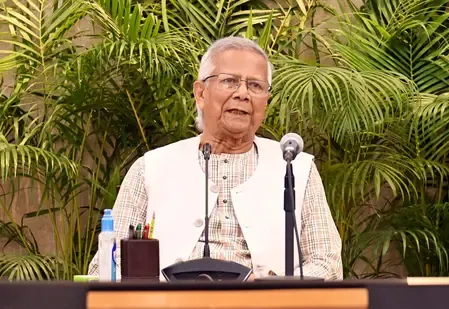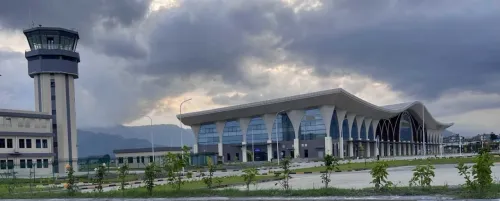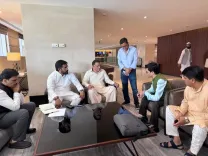Is Bangladesh Facing a Democratic Crisis After Yunus' Contradictory Remarks?

Synopsis
Key Takeaways
- Yunus's remarks reflect key contradictions.
- The Awami League argues that the suspension is a euphemism for a ban.
- Concerns about the legitimacy of the interim government grow.
- International intervention is deemed necessary for democracy.
- Authoritarian tendencies are emerging within the government.
Dhaka, Oct 4 (NationPress) The Awami League party of Bangladesh has claimed that the recent comments made by Chief Advisor to the interim government Muhammad Yunus have once again highlighted his own inconsistencies and insecurities, raising alarms about a potential democratic crisis in the nation.
These statements were made in response to Yunus's interview with journalist Mehdi Hasan, the founder of the international media outlet Zeteo, during the United Nations General Assembly in New York. In this interview, Yunus attempted to characterize the Awami League’s predicament as a mere “suspension” rather than a complete ban.
The Awami League criticized Yunus, stating, “If a political party is unable to organize, campaign, or participate in elections, it has effectively been banned. Describing it as a suspension is merely a rhetorical tactic aimed at softening the reality for international observers questioning the democratic legitimacy of his government.”
“In attempting to defend the suspension of the Awami League, Bangladesh’s largest political party, Yunus stumbled into a series of linguistic games, insisting that the party is not ‘banned’ but merely ‘suspended’. This ludicrous assertion reveals two key points: he lacks a full understanding of the democratic repercussions of his actions, and he harbors a deep-seated fear of the Awami League’s potential resurgence at any moment,” the party stated.
The Awami League emphasized that Yunus is attempting to justify authoritarian measures through linguistic manipulation, indicating that he is neither secure in the interim government’s legitimacy nor genuinely committed to the democratic values he claims to uphold.
The party argued that Yunus's interview was “more than just political theatrics”; it serves as evidence that Bangladesh is veering into perilous territory, where the populace's voice is being stifled and the need for international intervention has become pressing.
“The interview reveals Yunus as a leader burdened with conflicting, evasive, and inconsistent statements, fixated on marginalizing the Awami League. He repeatedly claimed the party is 'valid' yet suspended, downplayed its support, and asserted that only the Election Commission determines which parties can participate—demonstrating a blatant disregard for democratic values,” the party pointed out.
Quoting Yunus’s comment, “it’s our decision how long we stay,” the Awami League highlighted that this reflects an authoritarian mindset, showing a readiness to extend power at will, indifferent to public consent or electoral legitimacy.
The party claimed that the continuous emphasis on stifling the Awami League indicates a “government ruled by fear, not governance.” Yunus appears to be less focused on fair competition or the will of the electorate and more intent on maintaining control by suppressing Bangladesh’s most popular political entity.
“Bangladeshis cannot restore balance alone while the country’s largest political party is forcibly sidelined. Yunus's contradictory statements and authoritarian actions reveal that without international pressure, the prospects for free and fair elections are grim,” the Awami League asserted.









